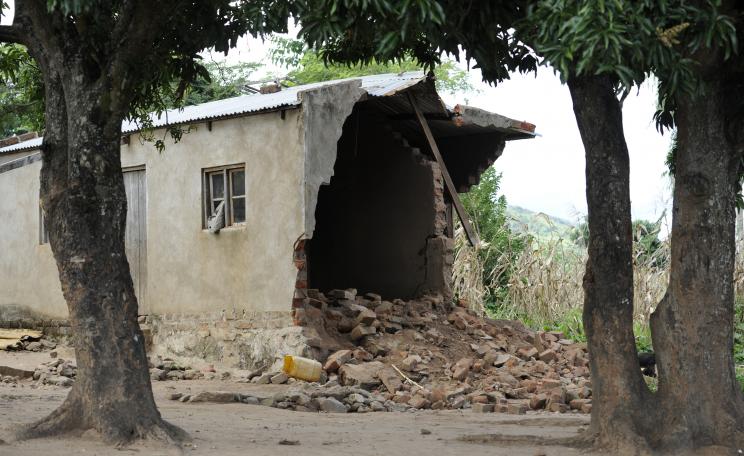Investment in local jobs in key areas such as renewable energy and retrofitting housing insulation is beneficial.
COP26 is upon us. Boris Johnson has raised the rhetoric in recent weeks about the UK’s leading position on climate change and the need for urgent global action.
While the lack of commitments by China have been cited by some as a reason why the meeting had failed before it has begun, it is worth looking at what is being proposed as necessary action by world leaders and whether any of the two weeks of negotiation are going to focus on what really makes a difference to the environment.
If COP is a success, and agreements are reached, are there mechanisms to rapidly implement these agreements alongside Covid recovery plans? If COP doesn’t deliver what it should, then what action can, and must, we take to avoid environmental catastrophe?
Investment
A key question is what should constitute a success at COP? Johnson wants agreement for emissions reductions to limit warming to 1.5 degrees and to reach net zero by mid-century, and there’s also welcome calls to ensure suitable finance is in place for the Global South to tackle the issue.
There’s no doubt that these high-level negotiations between world leaders require careful diplomacy and negotiation, but there is little detail about how to limit warming.
Johnson’s soundbite of ‘Coal, cars, cash and trees’ perhaps provides some of the UK’s thinking on the issue. Essentially, moving towards renewable energy, electrification of transport, providing money to the Global South and investing in nature, to absorb or sequester excess CO2.
The problem is our research shows that the proposed methods to prevent climate change don’t stack up with the need to limit warming to 1.5 degrees. The main reason for this is economic growth, or at least economic growth measured as GDP.
Investment in local jobs in key areas such as renewable energy and retrofitting housing insulation is beneficial.
For example, investment in renewables is a great idea, and reduces carbon from fossil fuels. However, economic growth means producing more, using more natural resources, and contributing to emissions as well as pollution and biodiversity loss, counteracting any benefits.
Growth
The strategies currently being proposed are useful. Shifting to renewables, insulating houses and many of the proposals in a basic Green New Deal are better than nothing, but are nowhere near enough.
Tree planting, or more accurately, comprehensive management and restoration of nature-based solutions across landscapes and seascapes, are probably the most effective single option in the soundbite list above, but still nowhere near enough.
Even with strong investment into restoration of forests, peatlands and many other habitats as well as including the ocean sequestration of the entire UK overseas territories, total carbon sequestration for the UK would equate to offsetting only around 30 percent of the UK’s current emissions.
To make biggest difference, shifts to renewable energy, insulation, better public transport (likely electrified, but thinking beyond just cars) and nature-based solutions need to be accompanied by transformative carbon taxes and ending fossil fuel subsidies.
Such comprehensive Green New Deals have been proposed. The catch is, these are likely to curb, if not decrease, economic growth, and therefore have political consequences.
Social care
Economic revival and stimuli are of course big news post the Covid pandemic. Curbing economic growth sounds like - or is made to sound like - a dreadful idea.
However, some simple extensions to our published models show that investment in local jobs in key areas such as renewable energy, retrofitting housing insulation and energy and nature conservation is beneficial.
This investment can drive the necessary changes for improved environmental conditions, including climate change and greatly reduce socio-economic inequality - for example by providing economic benefits to those who need them most.
But this is only the case when the investment in local jobs takes place alongside economic measures such as reducing fossil fuel subsidies and carbon taxation.
Careful planning of additional jobs, such as manufacturing of green products to support renewables and home improvements, and low impact jobs, such as social care jobs, will reduce inequality further, and still provide a system which delivers real environmental gains.
Non-exploitative
There is a need to take transformative reform seriously if we are going to address the multiple environmental crises we currently face.
Solid, and well presented and communicated science and social sciences, along with high-profile environmental campaigns can really change the narrative around environmental issues.
For example, groups like Extinction Rebellion and School Strike for Climate, along with influential IPCC reports, really shifted the narrative of environmental problems from plastic pollution to climate change in recent years.
We now need campaign groups to unify around comprehensive plans for Green New Deals. Within countries of the Global North, these plans must include large scale economic change such as carbon taxes, incorporate Nature-based solutions and provide opportunities for new jobs post-Covid.
Beyond the Global North, where emissions per capita are much lower, transformative plans can allow for economic growth, without increasing carbon emissions.
The countries of the Global South, therefore, should be allowed freedom but be financially supported in developing their own plans, which account for cultural differences from developed countries and are non-exploitative of land or resources.
These Authors
Rick Stafford, Ellie Jones and James Sokolnicki are based at the department of life and environmental sciences, Bournemouth University.




